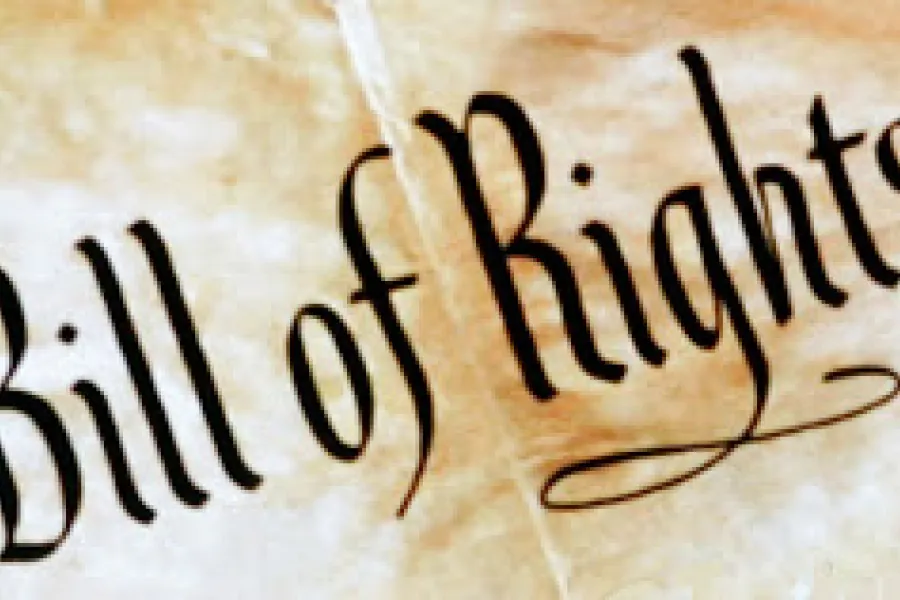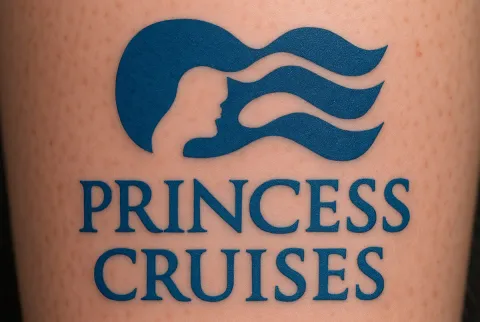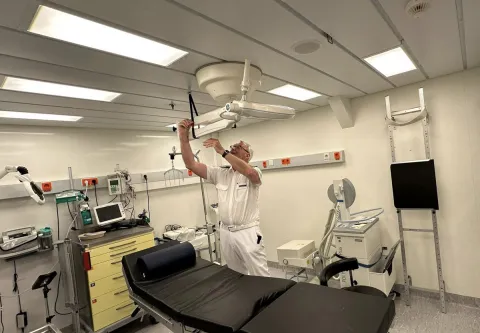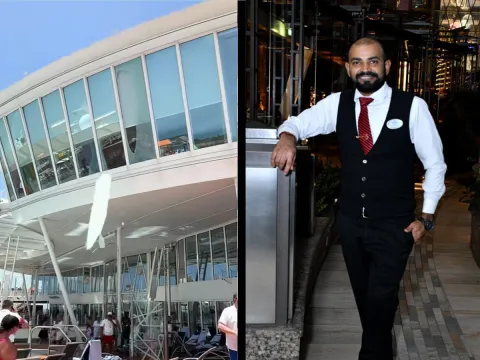
Throughout history, seafarers have been denied the right to safe working conditions, decent living accommodations, food, and wages. Whether the seafarer is a cruise ship or commercial cargo vessel worker, there have been numerous times when they have been denied basic rights as a consequence of Flags of Convenience, lack of valid Unionization, an abundance of willing unskilled laborers and the lack of a universal law offering them the protection they deserve.
In the U.S., there are laws in place that protect seafarers from harm, including the Jones Act, which enables injured seafarers to bring their lawsuit against their employer in the U.S. But this law only applies in the United States. As a result, seafarers who cannot avail themselves of U.S. laws often succumb to cruel treatment, abuse and injury all have very limited recourses to address this fact.
Until now, seafarer attorneys were the only line of defense injured and mistreated seamen could turn to in their time of need. According to Lipcon, Margulies, Alsina & Winkleman, P.A.,a maritime law firm based out of Miami, Florida, the ideal scenario would be to completely prevent an accident, an injury, a sickness or an act of injustice from happening altogether, but this is in all likelihood never going to be achievable. However a mayor step has been taken to address the consequences of each of these incidents when they occur which hopefully will greatly improve the lives of all of those who make their living as seafarers.
The International Labour Organization (ILO) has introduced the Maritime Labour Convention, 2006 (MLC, 2006) in order to finally have a universal set of maritime safety standards and rights to protect seamen. Also known as the Seafarers’ Bill of Rights, the convention officially went into effect last Tuesday in 30 countries across the globe, providing a detailed list of rights all seafarers will be afforded, including a safer working environment, the right to wages and the right to a minimum number of rest hours.
Unlike other maritime laws that have come before it, MLC, 2006 provides an international standard of safety for seafarers who are employed by member states or whose vessels dock at a port where the convention is ratified and has the potential to drastically reduce the rate of accidents and mistreatment onboard commercial vessels.
Who is Subject to the Convention and What Does This Mean for Seafarers?
As of today, 47 countries have ratified the convention, accounting for more than 50 percent of the 1.5 million seafarers that are currently employed worldwide. This is a huge step toward improving working conditions for seafarers, especially following a higher-than-normal year of accidents at sea and in port. Far too many seafarers have been subjected to dangerous working conditions by their employing companies. Many are overworked to the point they become fatigued, suffer accidents or develop occupational diseases, yet their employers have in the past refuse to allow them their right to rest and even in some cases medical treatment. There are other times when employing companies fail to properly train their crew, forcing them to perform tasks they are not equipped to handle. This eventually results in accidents and all too often serious injuries to those involved in the task being done and sometimes even others.
The Seafarers’ Bill of Rights aims to put an end to this mistreatment of seafarers, ensuring all workers are treated fairly and afforded the safe environment they deserve. If a vessel that has adopted the convention is found to have violated any of the seafarers’ rights delegated by the legislation, they will be subject to liability if there is evidence proving their negligence and the violations contributed to the injuries or disabilities of a worker.
Among the many stipulations of the convention, seafarers will be entitled to the following universal rights:
- Minimum age for employment
- Standardized employment agreements
- Minimum required hours of rest
- Rightful payment of wages
- Paid annual leave
- Repatriation at the end of a contract
- Medical attention onboard a vessel
- Food and shelter
- Overall workplace safety
- Efficient method for filing a complaint
How Does the Convention Work?
The MLC, 2006 simplifies previous maritime laws protecting seafarers and offers a simple, comprehensive and universal set of rights all seamen must be afforded. If a nation accepts the regulations set forth in the convention, then any commercial vessel of 500 gross tons or larger that flies the flag of any of the countries that ratify the convention must carry the Maritime Labour Certificate (MLC) and the Declaration of Maritime Labour Compliance (DMLC) onboard their vessel at all times. These documents serve as a testament of their commitment to the convention and the shipping vessel’s compliance with the regulations of the bill.
In order to ensure employers are abiding by these rules, whenever a vessel docks in a country that has ratified the MLC, 2006, they will be subject to inspection. Additionally, ships that fly flags of countries that have not ratified the convention will also be subject to inspection if they enter the port of a nation that participates in the convention.
Lipcon’s international maritime attorneys believe this stipulation will have a monumental impact on the commercial shipping industry because it will eliminate favoritism in the industry and the loopholes which allow companies to evade accountability for unjust actions by flying the flags of nations willing to accommodate the interest of the line rather than the rights of the seafarers, commonly referred to as ‘flags of convenience’. The United States has some of the strictest maritime safety regulations in place to protect seafarers from harm, yet companies still find ways to evade these laws. Imagine now what countries that do not have these laws for protecting seafarers get away with. The inspections of all vessels docking in any country that has ratified the convention will help ensure companies are complying with the new laws and will hopefully decrease the chances that a seafarer will be taken advantage of.
Additional Benefits of the Seafarers’ Bill of Rights
The Seafarers’ Bill of Rights not only provides an international standard of safety for seafarers, but it also provides incentives for shipping companies and for the governments who choose to ratify the convention. Shipping companies can benefit from simplified maritime labor rights, which will eliminate the confusion of dealing with the varying laws of countries worldwide. The convention also makes it easier for a vessel to enter a port.By displaying the MLC, 2006 documents where they are visible,all member states know that the vessel must abide by the same laws, so there should be less questioning and difficulty entering into a foreign port. Additionally, by improvingoverall working conditions and protecting the seafarers’ right to food, shelter, medical attention, and rest, worker’s efficiency and productivity onboard the vessel is bound to improve.
As for the governments of the nations who ratify the convention, they will benefit from greater control over the industry. Here in the U.S. especially, the federal government has tried to exercise greater control over the maritime industry in order to prevent accident and injuries at the hands of negligent companies. Yet, because of the ‘flags of convenience’ and arbitration clauses in employee contracts, the government hasn’t been able to do much to protect seafarers from harm. The MLC, 2006 enables a uniform set of laws and allows governments the ability to enforce these maritime safety policies. The fact that there is one simplified standard of safety also makes it easier for governments to enforce the regulations and protect seafarers from mistreatment.
How the MLC, 2006 Can Enhance the Services of a Maritime Attorney
Before the convention, a maritime attorney was a seafarer’sbest avenue for protecting their rights, but these “rights” were only relative to an individual country. Now that the MLC, 2006 has gone into effect, there is a clear-cut set of regulations commercial vessels must abide by and if they violate any of the rules, the transparency afforded by the convention allows for a much greater chance of holding the guilty parties liable for their mistreatment of seafarers. As a maritime law firm with extensive experience handling crew claims, Lipcon, Margulies, Alsina & Winkleman, P.A. recognizes that thanks to this new legislation, seafarers that have previously been denied their rightful benefits, including wages, safe working conditions and the right to file a claim against their employer will now more readily be able to obtain justice for what they have suffered.
The firm’s maritime lawyers also believe the convention will address the much needed lack of safety onboard shipping vessels and will help to reduce the prevalence of crew member injustice. By having a consistent set of regulations in place, there will be no more confusion as to what is allowed and what is against the law. This will help create a unanimous way of handling legal cases and hopefully deter negligent maritime companies from engaging in their previous unsafe practices.
About Lipcon, Margulies, Alsina & Winkleman, P.A.
Lipcon, Margulies, Alsina & Winkleman, P.A. is an award-winning maritime and admiralty law firm handling personal injury claims against cruise lines, cargo vessels, tow companies, and boat operators. The attorneys at the firm have represented thousands of passengers and crewmembers injured or killed on ships worldwide, as well as those who have been denied their right to medical care, provisions or wages. The firm has consistently received the "AV" Preeminent rating of 5.0 out of 5.0 from their peers for their high ethical standards and professional ability, and its attorneys have been acclaimed for their high degree of professional achievement in the field of maritime law. The firm’s offices are in Miami, Florida, directly across from the largest cruise ship passenger port in the world. Visit the firm online at www.lipcon.com












